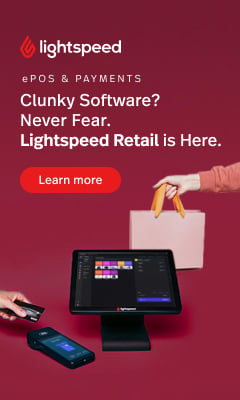Case Study – Rossmann: Successful Supply Chain & Coronavirus Crisis Management
Dirk Rossmann GmbH is Germany’s second-largest drugstore chain and operates over 4,000 stores in eight countries. Measured by turnover, the company ranks among Germany’s ten most important grocery retailers.
In 2015 Rossmann became RELEX’s first large German customer. The system was chosen for its flexible and customizable forecasting, replenishment, and promotion planning features. RELEX began rolling out to all of Rossmann’s German stores and DCs in February 2017 and completed the process by September 2017.
During the first December holiday shopping season after implementation, Rossmann was able to reduce stock-outs by 17%, and by the first Easter shopping period after implementation, stock-outs were reduced by 25%. Similarly, the number of stores experiencing availability issues was reduced by 85% within three months of implementation. All of these availability improvements were achieved with slightly lower inventories than before the RELEX go-live.
One of the greatest business benefits according to Rossmann however, is RELEX’s ability to “configure, not code” the system. “Unlike our old inventory management software, RELEX gives us the ability to react quickly to new circumstances and requirements—and we don’t even need programming skills to do so,” says Jürgen Mattulke, Director of Supply Chain at Rossmann.
Successful Coronavirus Crisis Management Due to Flexible Updates
As it did for most retailers around the world, the coronavirus pandemic presented a significant challenge for Rossmann. To ensure essential products could reach their customers during the high-demand period, Mattulke’s supply chain team needed to rapidly adapt their automated processes. They developed a process that allowed them to manage order positions and deprioritize both nonessential items and items that were not an out-of-stock risk, which helped them manage their most critical product groups and secure availability with their suppliers. It took the team just two days from coming up with the idea to putting it into practice with new configurations in the system—as a result, they were able to react quickly to demand changes and minimize shortages and out-of-stocks during the acute phase of the pandemic.
The crisis also brought a massive shift in customer volume. When lockdowns were implemented, high-revenue stores in city centers saw an atypical 50% reduction in traffic, while suburban stores saw a similar increase in volume. Rossmann handled this shift by using RELEX to add forecasts at the store level, which enabled them to address each store’s needs by increasing or decreasing inventory to meet local demand.
“With RELEX in place across the business, we were able to successfully navigate the coronavirus crisis, support individual stores, and meet our customers’ needs with a high level of service during this unique time of shifting demand,” Mattulke explains. “This would have been impossible with our old system. The RELEX system enables us to react quickly to new requirements and circumstances. Its flexibility has given us opportunities to change and implement processes in ways that we hadn’t thought of before. This was particularly important when we needed to pivot quickly to meet changes in consumer demand that we hadn’t anticipated.”
Read the full case study here.
To help retailers like Rossmann establish a strong foundation for demand forecasting best practices and reap the benefits of machine learning in retail planning, RELEX has created The Complete Guide to Machine Learning in Retail Demand Forecasting. The guide discusses the benefits of machine learning, how it can improve the accuracy of your forecasts, and best practices for using it in your retail business.














